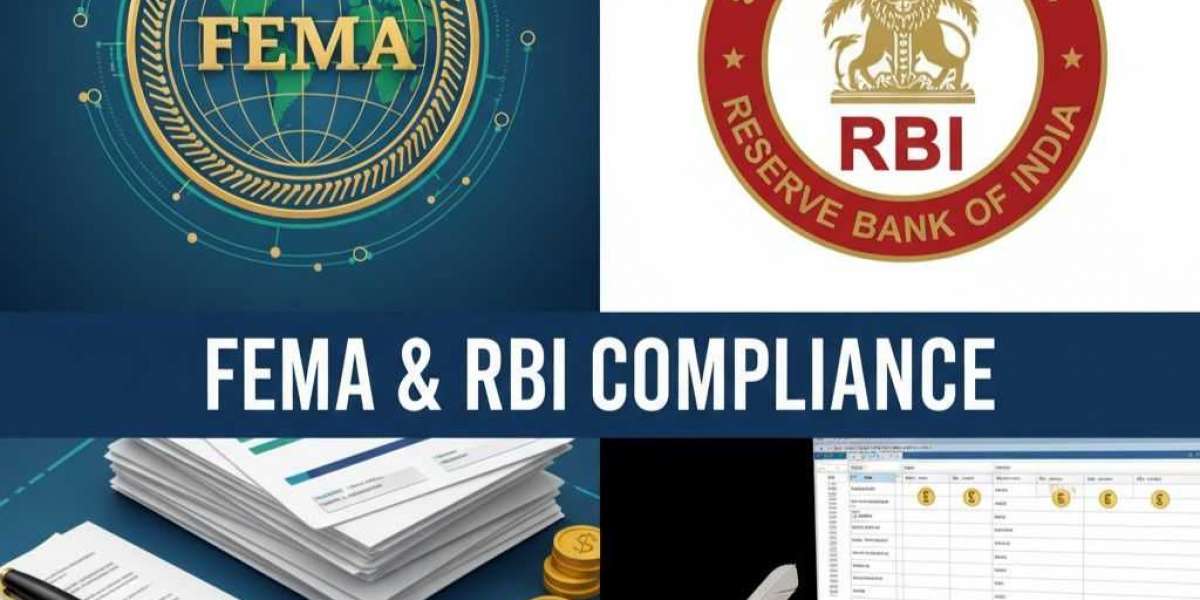In today’s globalized business environment, cross-border transactions and foreign investments have become an integral part of India’s economic growth. However, these transactions are regulated by specific laws and authorities to ensure compliance, transparency, and accountability. Two key pillars in this regulatory structure are FEMA and RBI Compliance. Understanding how these frameworks operate is essential for businesses and investors dealing with foreign exchange, overseas investments, or inbound remittances.
This article by R Pareva Company provides an in-depth overview of the FEMA and RBI Compliance Framework in India, explaining its scope, key provisions, and importance for companies and investors.
What is FEMA?
The Foreign Exchange Management Act (FEMA), enacted in 1999, replaced the earlier FERA (Foreign Exchange Regulation Act) and aims to facilitate external trade and promote the orderly development of the foreign exchange market in India. FEMA governs all transactions involving foreign exchange and is administered by the Reserve Bank of India (RBI).
FEMA applies to every person residing in India and to all transactions involving foreign exchange, foreign security, or foreign assets. Its primary objective is not to restrict foreign exchange transactions but to regulate and monitor them to ensure that the inflow and outflow of money are legitimate and traceable.
Role of the Reserve Bank of India (RBI) in FEMA Compliance
The Reserve Bank of India (RBI) acts as the primary regulatory body under FEMA. It issues guidelines, circulars, and notifications to ensure compliance with the law. The RBI also monitors foreign investments, external borrowings, and cross-border transactions to ensure that they align with national economic and monetary policies.
RBI compliance for foreign investment and RBI compliance for private limited company requirements are defined through specific rules and reporting obligations. Businesses dealing in foreign investments must submit periodic reports, maintain documentation, and follow prescribed procedures to remain compliant.
Importance of FEMA and RBI Compliance in India
FEMA and RBI Compliance in India is crucial for maintaining the stability and integrity of the financial system. Non-compliance can lead to penalties, legal scrutiny, and even restrictions on foreign transactions. Here are a few key reasons why compliance is vital:
Ensures Legal Operations: All foreign exchange transactions must be in accordance with FEMA and RBI guidelines to avoid legal consequences.
Promotes Transparency: Regular reporting ensures transparency in cross-border dealings.
Prevents Money Laundering: Compliance helps trace legitimate inflows and outflows, preventing misuse of funds.
Facilitates Smooth Business Operations: Compliant businesses can easily attract foreign investments and expand globally.
FEMA Compliance in India: Key Provisions
FEMA Compliance in India covers a broad range of transactions, including:
Foreign Direct Investment (FDI): Governs capital inflows from foreign investors into Indian entities.
External Commercial Borrowings (ECB): Regulates borrowings from non-resident lenders.
Overseas Direct Investment (ODI): Monitors investments made by Indian entities in foreign ventures.
Repatriation and Remittances: Controls money sent abroad or received from overseas.
Liberalised Remittance Scheme (LRS): Allows resident individuals to remit funds abroad within specified limits.
Every transaction under these categories must adhere to specific RBI compliance requirements such as reporting forms, timelines, and documentation.
RBI Compliance for Foreign Investment
RBI compliance for foreign investment involves several procedural and reporting obligations to ensure that foreign capital entering India is legitimate and within prescribed limits.
Key compliance steps include:
Filing of Form FC-GPR: When a company issues shares to a foreign investor, it must report this transaction to the RBI using Form FC-GPR within 30 days.
Filing of Form FC-TRS: Used when shares are transferred between residents and non-residents.
Annual Return on Foreign Liabilities and Assets (FLA): Companies must report their foreign assets and liabilities annually to the RBI.
Adherence to Sectoral Caps: Each industry has prescribed limits for foreign investment. Companies must ensure they remain within these caps.
Failure to comply with these reporting obligations can result in penalties under FEMA provisions.
RBI Compliance for Private Limited Company
Every private limited company in India that receives foreign investment or engages in foreign exchange transactions must adhere to RBI compliance for private limited company requirements.
Some key responsibilities include:
Maintaining Proper Documentation: All share allotments, remittances, and approvals must be documented.
Timely Reporting: Forms such as FC-GPR, FC-TRS, and FLA must be filed within the prescribed timelines.
Compliance with Pricing Guidelines: Shares issued to or transferred from non-residents must comply with RBI-approved valuation norms.
Adherence to FEMA Rules: The company must ensure that its foreign exchange dealings comply with FEMA guidelines.
Such compliance helps maintain good standing with regulatory authorities and builds investor confidence.
Consequences of Non-Compliance under FEMA
Failure to comply with FEMA and RBI Compliance requirements can lead to significant consequences, including:
Monetary Penalties: The penalty may be up to three times the sum involved in the contravention.
Adjudication Proceedings: Non-compliant entities may be subject to investigation and legal scrutiny.
Prosecution for Serious Violations: In cases involving willful non-compliance, authorities may initiate prosecution.
Reputational Impact: Non-compliance can adversely affect a company’s reputation and deter potential investors.
Timely compliance and proper record-keeping are essential to avoid such risks.
Best Practices for FEMA and RBI Compliance
To ensure effective FEMA and RBI Compliance in India, organizations should adopt the following best practices:
Regular Compliance Reviews: Conduct periodic internal audits to verify adherence to FEMA and RBI regulations.
Maintain Comprehensive Records: Keep all documents related to foreign transactions, approvals, and reports organized.
Stay Updated with RBI Notifications: FEMA regulations are subject to frequent updates, so staying informed is crucial.
Seek Professional Guidance: Consulting experts such as R Pareva Company can help businesses interpret complex provisions and remain compliant.
Train Finance Teams: Ensure that finance and legal teams understand FEMA rules and reporting requirements.
Recent Developments in FEMA and RBI Compliance
The Indian government and the RBI continuously revise FEMA-related provisions to align with evolving business needs and global standards. Some recent trends include:
Simplified Reporting Mechanisms: Introduction of online filing portals like FIRMS for FDI reporting.
Ease of Doing Business: Relaxation in certain FEMA provisions to encourage foreign investments.
Enhanced Monitoring: Stricter scrutiny of high-value cross-border transactions to prevent money laundering.
These developments highlight the dynamic nature of FEMA and RBI Compliance in India, emphasizing the need for regular updates and professional oversight.
Conclusion
Understanding and implementing FEMA and RBI Compliance is essential for any entity engaging in foreign exchange transactions, investments, or cross-border operations in India. It ensures transparency, legal validity, and alignment with India’s regulatory framework.
Whether it’s RBI compliance for foreign investment, RBI compliance for private limited company, or general FEMA Compliance in India, adherence to these guidelines helps businesses operate seamlessly and build trust with stakeholders.
R Pareva Company provides expert insights and professional guidance to help organizations understand and comply with FEMA and RBI regulations effectively.








